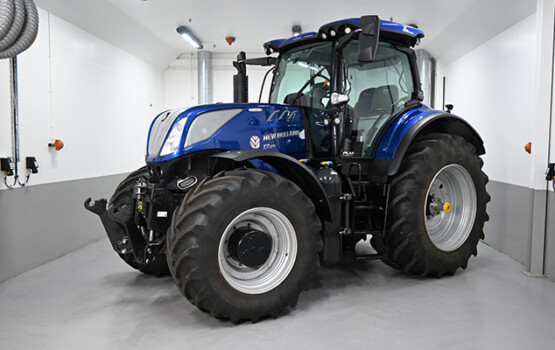Portal for more climate-friendly mobility
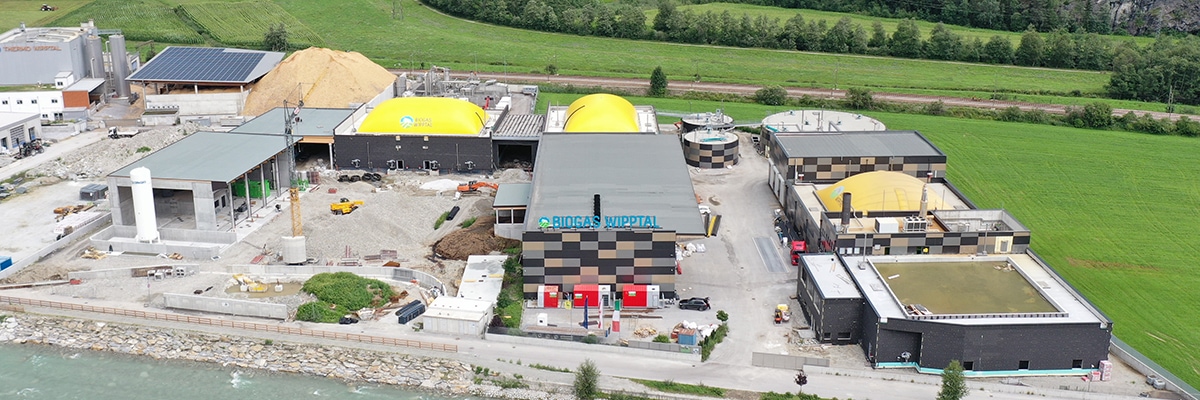
Combining agriculture and transport
When it comes to decarbonisation, Biogas Wipptal bridges the gap between agriculture and transport. An innovative project with role model character.
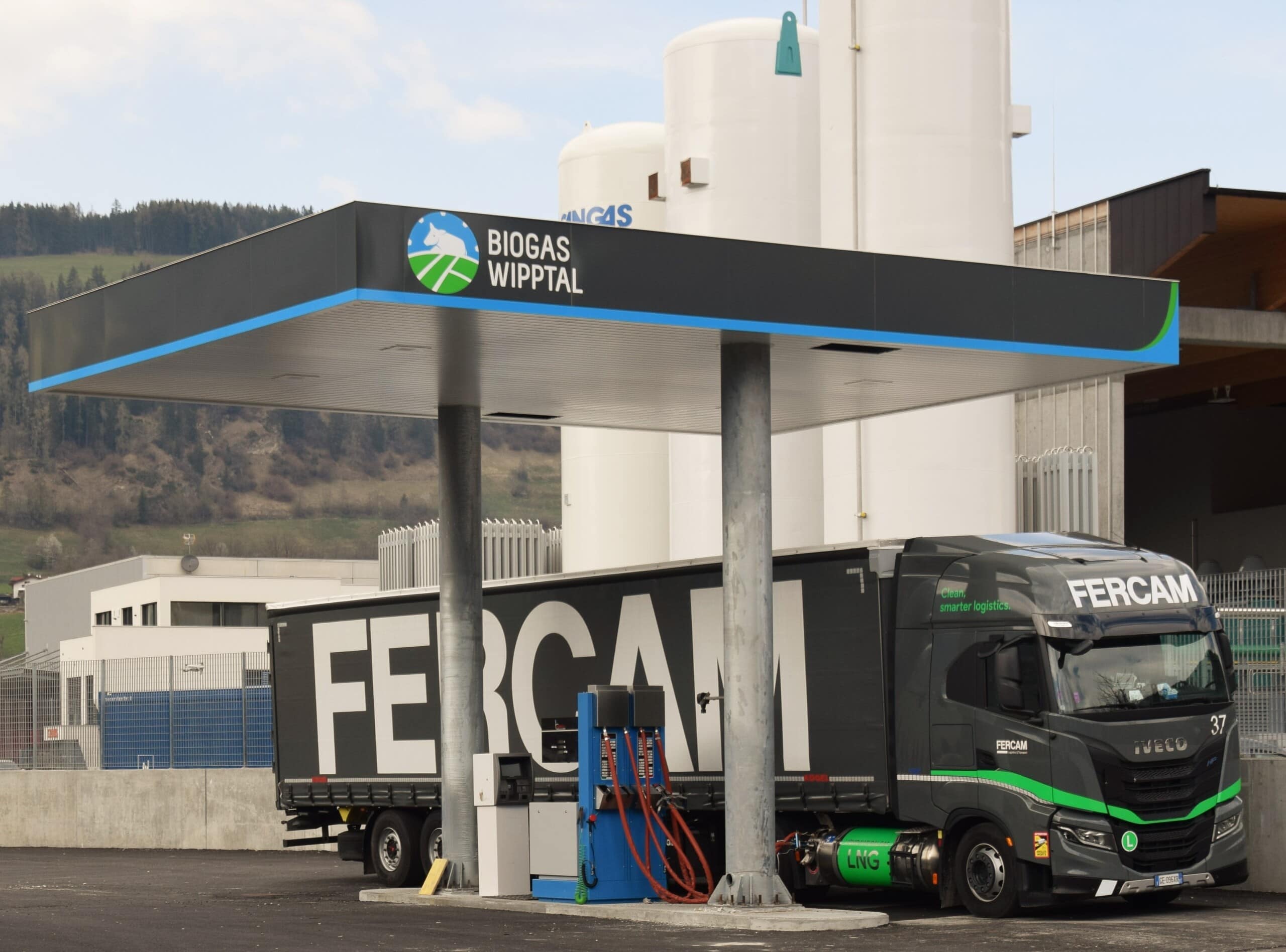 One of the LNG trucks that, thanks to Biogas Wipptal, can now fill up with bio-LNG and thus be almost CO2-neutral on the road. Source: Iveco
One of the LNG trucks that, thanks to Biogas Wipptal, can now fill up with bio-LNG and thus be almost CO2-neutral on the road. Source: Iveco
Biogas Wipptal in South Tyrol shows how a modern circular economy can work. The South Tyrolean company brings together some 60 dairy farms in the Alta Valle Isarco region, using their slurry, manure and organic residue. In addition to biogas – like many Swiss biogas plants – Biogas Wipptal also produces high-quality fertiliser by means of the fermentation process, thereby reducing nitrate pollution on agricultural land.
The circular economy model involves local actors while at the same time feeding the fertiliser back into regional agriculture, vineyards and orchards. The approach adopted by Biogas Wipptal significantly reduces fertilisation with manure and slurry, saving 1.2 tonnes of CO2 per year and dairy cow. Farmers are also provided with sensor-controlled, slope-compatible spreading systems that reduce greenhouse gases by 95% and ammonia emissions by 60%.
A great success – but the South Tyrolean company is not content to stop there. They are now looking to take the circular economy even further: proximity to the Brenner transit route and the entry of partners from the transport sector such as Fercam, Iveco Gasser and Transbozen have made it possible to expand the concept of the biogas plant. Some 20 million euros have been invested in state-of-the-art technical facilities, enabling sustainable biogenic carbon dioxide for food production and bio-LNG for near-carbon-neutral transport using LNG trucks.
The excellent work done by this alliance of dairy farmers for the environment so as to achieve greater sustainability has not gone unnoticed: last year, Biogas Wipptal was appointed Iveco Ambassador in recognition of its commitment to CNG and biogas mobility, as well as its production of liquefied biogas. “Biogas Wipptal is a positive example of the circular economy,” says Giandomenico Fioretti, Iveco Head of Alternative Propulsion Business Development. “It not only contributes environmental benefits, it also increases energy independence and reduces dependence on expensive chemical fertilisers.”
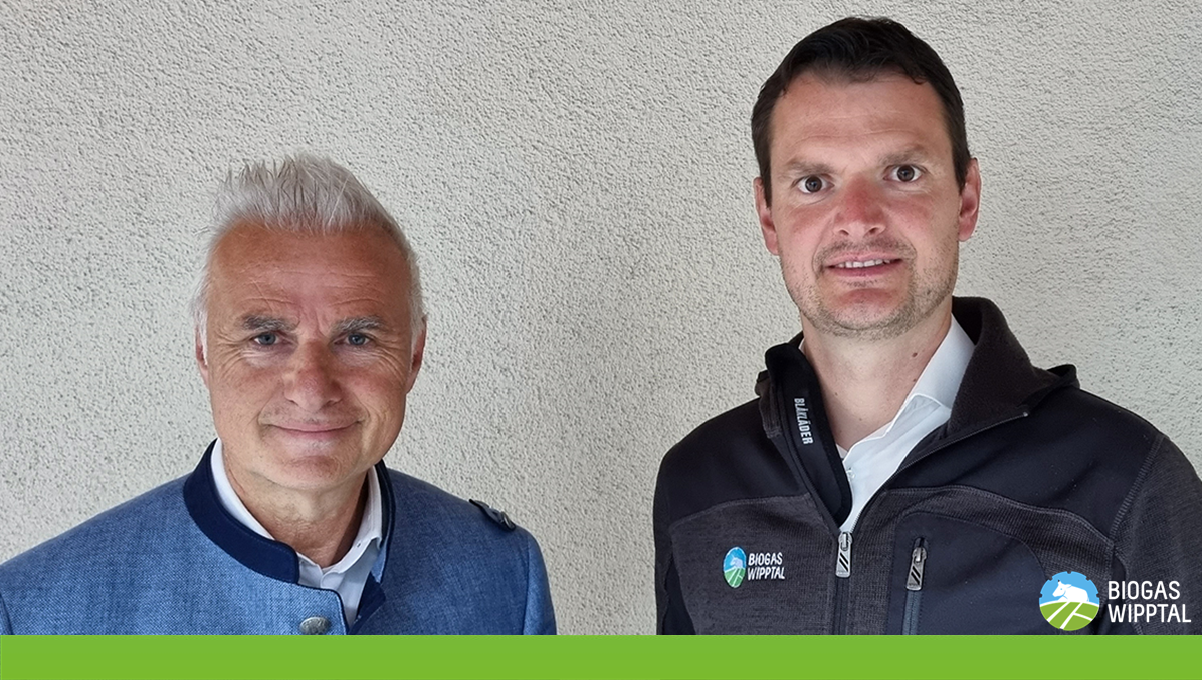 Thomas Klapfer, President of Biogas Wipptal, and Manfred Gius, CEO of Biogas Wipptal GmbH, continue to drive the promising circular economy project forward. Source: Biogas Wipptal GmbH.
Thomas Klapfer, President of Biogas Wipptal, and Manfred Gius, CEO of Biogas Wipptal GmbH, continue to drive the promising circular economy project forward. Source: Biogas Wipptal GmbH.
This is only the fourth nomination to date under the Iveco International Ambassador Programme. Offering a wide range of CNG and LNG vehicles itself, the truck manager is using this programme to give a voice to customers and partners who share the same values and who consider sustainability to be a key issue in their strategy, thereby raising their profile among a wider public. The nomination of Biogas Wipptal is the result of a global selection process; the others to have been awarded the honour are the Italian companies GLS Italy and Gruppo Maganetti and Nicholls Transport based in the UK.
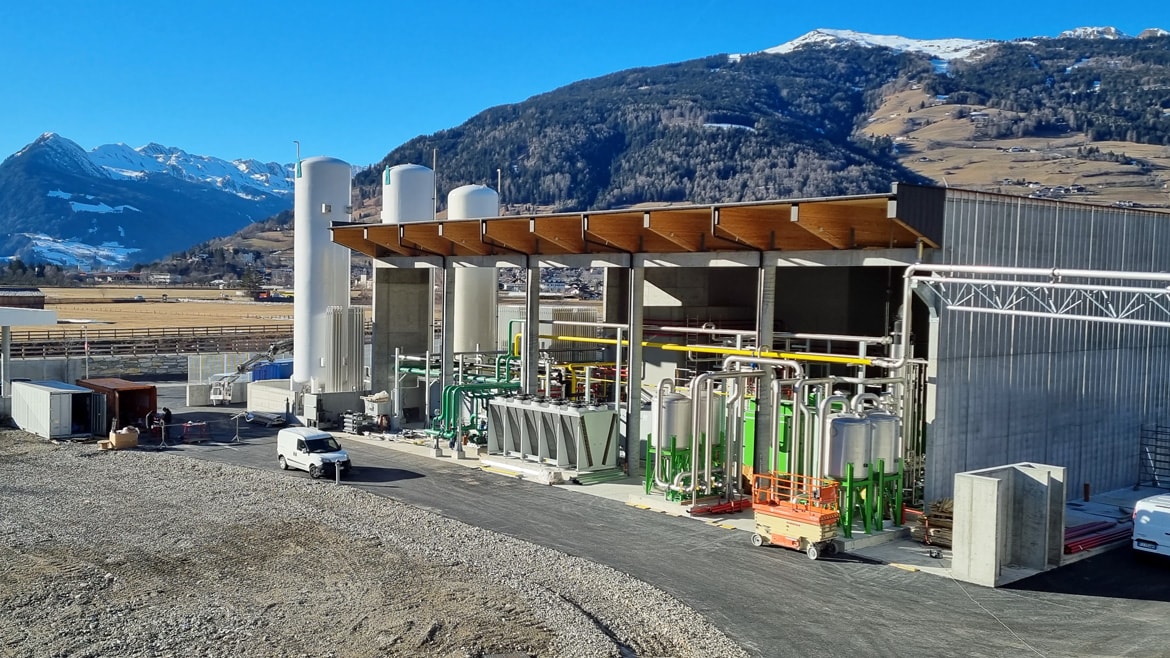 Around 20 million euros have been invested in state-of-the-art technical equipment to also be able to produce sustainable biogenic carbon dioxide for food production and bio-LNG for almost CO2-neutral transport with LNG trucks. Source: Bolzano Chamber of Commerce
Around 20 million euros have been invested in state-of-the-art technical equipment to also be able to produce sustainable biogenic carbon dioxide for food production and bio-LNG for almost CO2-neutral transport with LNG trucks. Source: Bolzano Chamber of Commerce
“When used as a fuel in heavy commercial vehicles, bio-LNG is a valuable resource for the complete decarbonisation of logistics processes – without compromising on performance and areas of deployment compared to conventional diesel trucks,” explains Giandomenico Fioretti. “The use of biogas is one of the key solutions identified and supported by the EU Commission through a specific production target of 35 billion cubic metres by 2030 under the REPowerEU plan,” adds the Iveco expert.
“We’re extremely pleased to have been appointed Iveco Ambassador. With our production of around 11 tonnes of bio-LNG per day, we’re able to supply almost 30 LNG-powered trucks – that’s a valuable contribution to climate protection,” explains Manfred Gius, CEO of Biogas Wipptal GmbH. “As far as decarbonisation is concerned, we see ourselves as a bridge between the two worlds of agriculture and transport: they both benefit from our biogas plant.” (pd/jas, 10 January 2023)
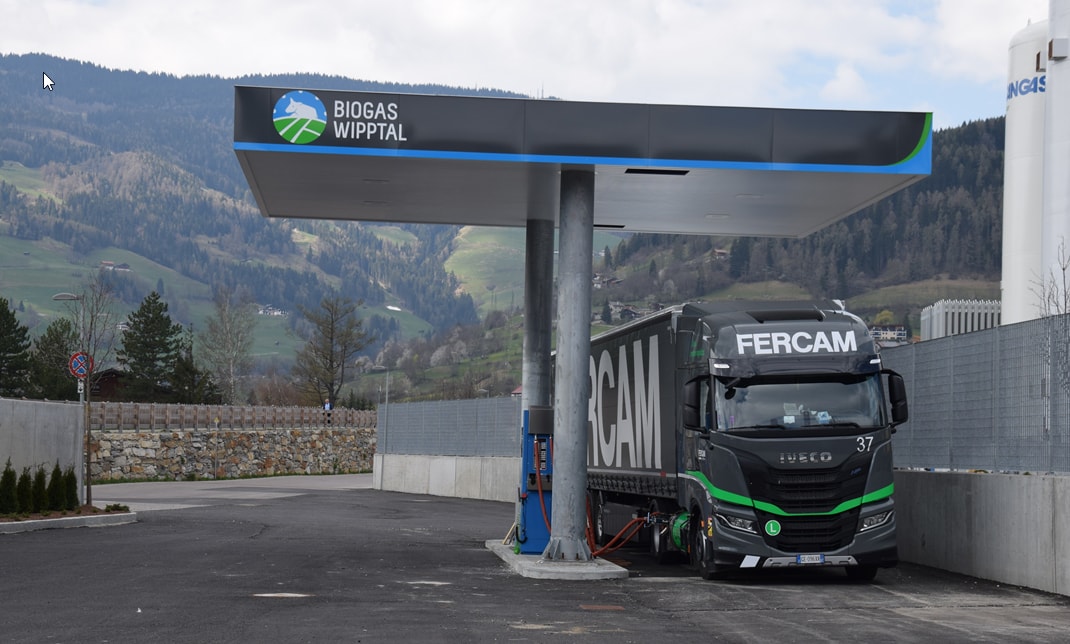 The new biogas and bio-LNG filling station is located on the important Brenner transit route. Source: Biogas Wipptal GmbH.
The new biogas and bio-LNG filling station is located on the important Brenner transit route. Source: Biogas Wipptal GmbH.
You might also be interested in
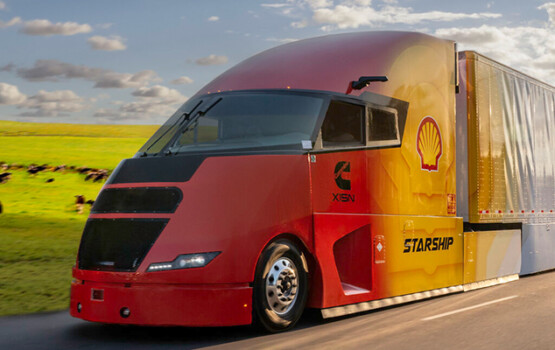
Shell Starship on record hunt
